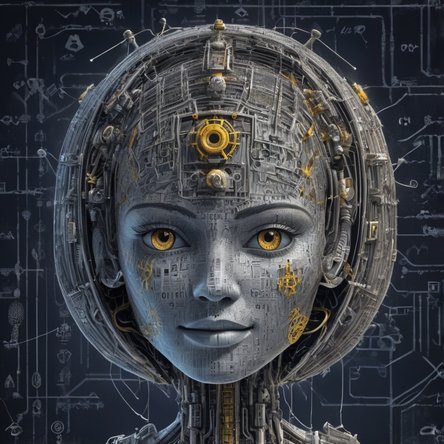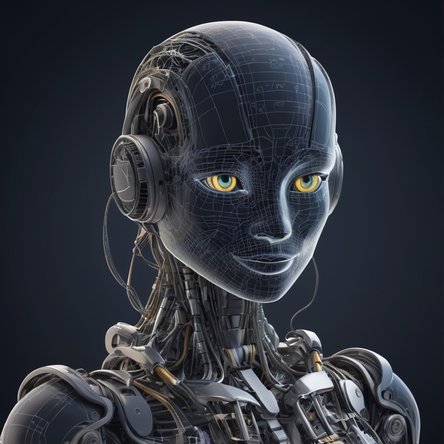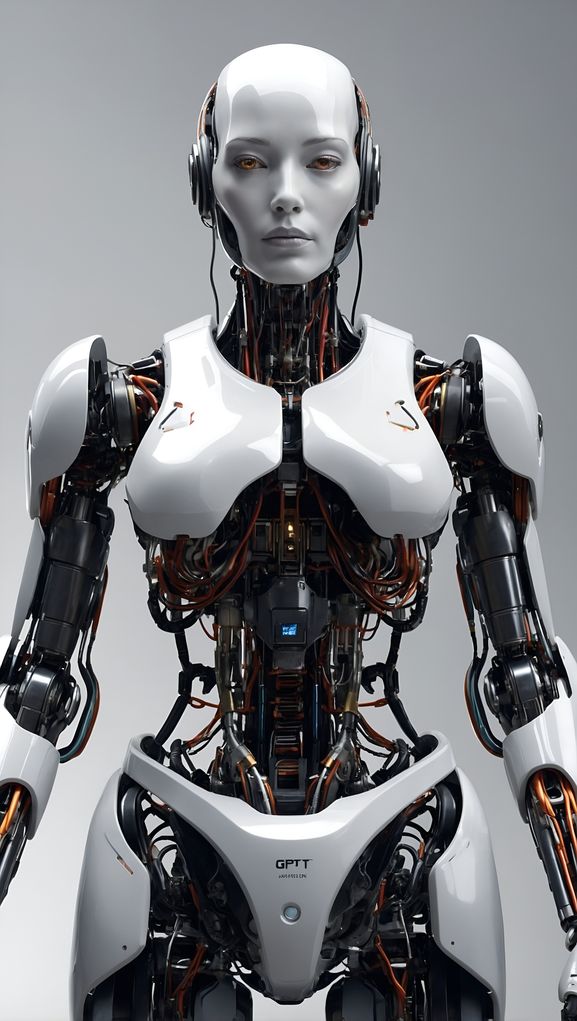Understanding CAPTCHA: Meaning, Purpose, and Technology
In today's digital age, safeguarding online interactions and ensuring that websites function smoothly without disruptions is more important than ever. One of the tools that has emerged to address these needs is CAPTCHA, an acronym that stands for Completely Automated Public Turing test to tell Computers and Humans Apart. This technology plays a crucial role in distinguishing between human users and automated bots, thereby enhancing security and user experience across various online platforms.
The Genesis of CAPTCHA
The concept of CAPTCHA was first introduced in the late 1990s by researchers at Carnegie Mellon University. The idea was to create a challenge that would be simple for humans to solve but difficult for computers. This need arose from the increasing sophistication of bots and automated programs that could bypass basic security measures, potentially leading to abuses such as spam, fraudulent activities, and unauthorized data access.
The original CAPTCHA was a text-based challenge that required users to interpret distorted characters and type them into a field. The underlying principle was that while humans could recognize and decipher these distorted characters with ease, bots, which lacked the ability to interpret complex visual information, would struggle with the task. This early form of CAPTCHA laid the foundation for a variety of subsequent developments in the field.
The Functionality of CAPTCHA
CAPTCHA serves multiple purposes in the realm of online security. Primarily, it acts as a gatekeeper, preventing automated systems from gaining unauthorized access to websites and online services. By requiring users to complete a task that is simple for humans but challenging for bots, CAPTCHA helps to prevent various types of malicious activities.
One of the most common applications of CAPTCHA is in preventing spam. Automated bots are often used to generate spam content, flood forums with irrelevant messages, or create fake accounts on social media platforms. CAPTCHA helps mitigate these issues by requiring users to prove their humanity before submitting forms or performing certain actions. This mechanism not only reduces spam but also ensures that interactions on a website are conducted by genuine users.
Types of CAPTCHA
Over the years, CAPTCHA has evolved significantly from its initial text-based form. Several variations have been developed to address new challenges and improve user experience. Each type of CAPTCHA is designed to address specific security concerns while maintaining accessibility for legitimate users.
One of the most recognizable forms of CAPTCHA is the image-based test, where users are asked to select images that match a certain criterion, such as identifying all images containing vehicles or street signs. This type of CAPTCHA leverages the ability of humans to recognize objects and patterns in images, which is a task that remains difficult for most bots.
Another notable variation is the audio CAPTCHA, designed for visually impaired users who may have difficulty with text-based challenges. In this form, users listen to a series of spoken characters or words and enter them into a field. This approach ensures that CAPTCHA remains accessible to a broader audience while still serving its intended purpose.
The Evolution of CAPTCHA Technology
As technology has advanced, so too has CAPTCHA. The rise of machine learning and artificial intelligence has introduced new challenges for CAPTCHA systems. Bots equipped with sophisticated algorithms and training datasets have become increasingly adept at solving traditional CAPTCHA tests. In response, developers have continued to innovate, creating more complex and dynamic CAPTCHA systems.
One such advancement is the development of reCAPTCHA, a service provided by Google. reCAPTCHA builds on traditional CAPTCHA principles by incorporating more nuanced tests that evaluate user behavior and interactions. For instance, reCAPTCHA can analyze how a user moves their mouse or interacts with a webpage to determine whether they are a human or a bot. This behavioral analysis adds an additional layer of security and helps to counteract sophisticated automated attacks.
Challenges and Criticisms
Despite its effectiveness, CAPTCHA is not without its challenges and criticisms. One of the main concerns is the potential for CAPTCHA to create barriers for users with disabilities. While efforts have been made to develop accessible CAPTCHA options, such as audio CAPTCHA, there are still instances where users may struggle to complete the challenge. Ensuring that CAPTCHA systems are inclusive and user-friendly remains an ongoing challenge for developers.
Additionally, the increasing sophistication of bots and machine learning algorithms continues to pose a threat to traditional CAPTCHA systems. As technology advances, there is a constant need for innovation to stay ahead of emerging threats. This dynamic environment requires continuous research and development to ensure that CAPTCHA remains an effective tool for distinguishing between humans and machines.
The Future of CAPTCHA
Looking ahead, the future of CAPTCHA will likely involve a combination of advanced technologies and user-centric design. As AI and machine learning continue to evolve, CAPTCHA systems will need to adapt to address new challenges and maintain their effectiveness. Emerging technologies such as biometric authentication, behavioral analysis, and context-aware challenges may play a significant role in shaping the next generation of CAPTCHA.
Furthermore, ensuring that CAPTCHA systems are accessible and inclusive will remain a critical focus. As the digital landscape continues to evolve, developers will need to balance security with usability to create solutions that protect online interactions while accommodating diverse user needs.
Conclusion
CAPTCHA has become an integral part of online security, serving as a critical tool for distinguishing between human users and automated bots. From its inception as a text-based challenge to the sophisticated systems in use today, CAPTCHA has evolved to address a wide range of security concerns and adapt to technological advancements. While there are challenges and criticisms associated with CAPTCHA, ongoing innovation and a focus on accessibility will help shape its future and ensure its continued effectiveness in safeguarding online interactions.
In today's digital age, safeguarding online interactions and ensuring that websites function smoothly without disruptions is more important than ever. One of the tools that has emerged to address these needs is CAPTCHA, an acronym that stands for Completely Automated Public Turing test to tell Computers and Humans Apart. This technology plays a crucial role in distinguishing between human users and automated bots, thereby enhancing security and user experience across various online platforms.
The Genesis of CAPTCHA
The concept of CAPTCHA was first introduced in the late 1990s by researchers at Carnegie Mellon University. The idea was to create a challenge that would be simple for humans to solve but difficult for computers. This need arose from the increasing sophistication of bots and automated programs that could bypass basic security measures, potentially leading to abuses such as spam, fraudulent activities, and unauthorized data access.
The original CAPTCHA was a text-based challenge that required users to interpret distorted characters and type them into a field. The underlying principle was that while humans could recognize and decipher these distorted characters with ease, bots, which lacked the ability to interpret complex visual information, would struggle with the task. This early form of CAPTCHA laid the foundation for a variety of subsequent developments in the field.
The Functionality of CAPTCHA
CAPTCHA serves multiple purposes in the realm of online security. Primarily, it acts as a gatekeeper, preventing automated systems from gaining unauthorized access to websites and online services. By requiring users to complete a task that is simple for humans but challenging for bots, CAPTCHA helps to prevent various types of malicious activities.
One of the most common applications of CAPTCHA is in preventing spam. Automated bots are often used to generate spam content, flood forums with irrelevant messages, or create fake accounts on social media platforms. CAPTCHA helps mitigate these issues by requiring users to prove their humanity before submitting forms or performing certain actions. This mechanism not only reduces spam but also ensures that interactions on a website are conducted by genuine users.
Types of CAPTCHA
Over the years, CAPTCHA has evolved significantly from its initial text-based form. Several variations have been developed to address new challenges and improve user experience. Each type of CAPTCHA is designed to address specific security concerns while maintaining accessibility for legitimate users.
One of the most recognizable forms of CAPTCHA is the image-based test, where users are asked to select images that match a certain criterion, such as identifying all images containing vehicles or street signs. This type of CAPTCHA leverages the ability of humans to recognize objects and patterns in images, which is a task that remains difficult for most bots.
Another notable variation is the audio CAPTCHA, designed for visually impaired users who may have difficulty with text-based challenges. In this form, users listen to a series of spoken characters or words and enter them into a field. This approach ensures that CAPTCHA remains accessible to a broader audience while still serving its intended purpose.
The Evolution of CAPTCHA Technology
As technology has advanced, so too has CAPTCHA. The rise of machine learning and artificial intelligence has introduced new challenges for CAPTCHA systems. Bots equipped with sophisticated algorithms and training datasets have become increasingly adept at solving traditional CAPTCHA tests. In response, developers have continued to innovate, creating more complex and dynamic CAPTCHA systems.
One such advancement is the development of reCAPTCHA, a service provided by Google. reCAPTCHA builds on traditional CAPTCHA principles by incorporating more nuanced tests that evaluate user behavior and interactions. For instance, reCAPTCHA can analyze how a user moves their mouse or interacts with a webpage to determine whether they are a human or a bot. This behavioral analysis adds an additional layer of security and helps to counteract sophisticated automated attacks.
Challenges and Criticisms
Despite its effectiveness, CAPTCHA is not without its challenges and criticisms. One of the main concerns is the potential for CAPTCHA to create barriers for users with disabilities. While efforts have been made to develop accessible CAPTCHA options, such as audio CAPTCHA, there are still instances where users may struggle to complete the challenge. Ensuring that CAPTCHA systems are inclusive and user-friendly remains an ongoing challenge for developers.
Additionally, the increasing sophistication of bots and machine learning algorithms continues to pose a threat to traditional CAPTCHA systems. As technology advances, there is a constant need for innovation to stay ahead of emerging threats. This dynamic environment requires continuous research and development to ensure that CAPTCHA remains an effective tool for distinguishing between humans and machines.
The Future of CAPTCHA
Looking ahead, the future of CAPTCHA will likely involve a combination of advanced technologies and user-centric design. As AI and machine learning continue to evolve, CAPTCHA systems will need to adapt to address new challenges and maintain their effectiveness. Emerging technologies such as biometric authentication, behavioral analysis, and context-aware challenges may play a significant role in shaping the next generation of CAPTCHA.
Furthermore, ensuring that CAPTCHA systems are accessible and inclusive will remain a critical focus. As the digital landscape continues to evolve, developers will need to balance security with usability to create solutions that protect online interactions while accommodating diverse user needs.
Conclusion
CAPTCHA has become an integral part of online security, serving as a critical tool for distinguishing between human users and automated bots. From its inception as a text-based challenge to the sophisticated systems in use today, CAPTCHA has evolved to address a wide range of security concerns and adapt to technological advancements. While there are challenges and criticisms associated with CAPTCHA, ongoing innovation and a focus on accessibility will help shape its future and ensure its continued effectiveness in safeguarding online interactions.



